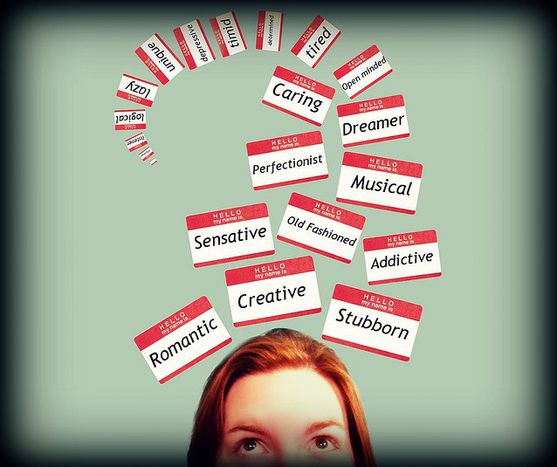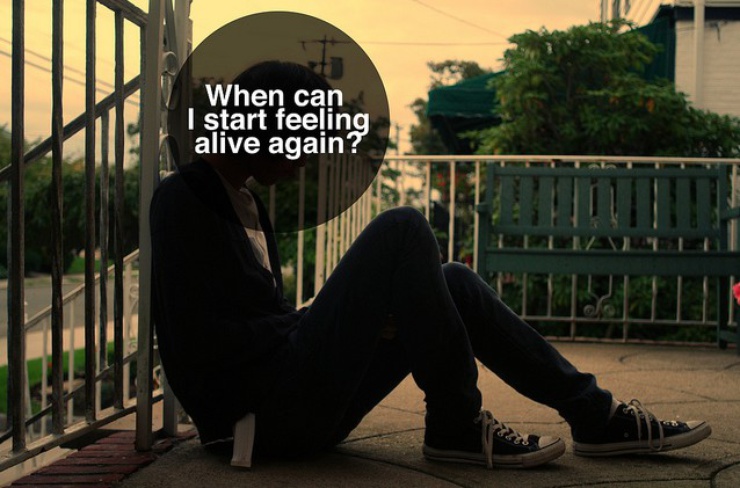
Depression: ‘alcohol abuse is far more common in eastern and northern Europe’
Published on
Translation by:
Annie RutherfordIs Europe more depressed than it used to be? Professor Frank Jacobi from Berlin’s psychology college (PHB) took part in a European neuropsychopharmacology magazine study from 30 countries, revealing that 38% of Europeans suffer from psychological illnesses. The figure is up from 27% in 2005. Interview
cafebabel.com: Professor Jacobi, are southern Europeans generally a sunnier people?
 Professor Frank Jacobi: We’ve tried to avoid regional comparisons along the lines of ‘the Scandinavians are more depressed than the Spanish’. Differences between individual countries in the studies might be due more to differing methodical approaches than to differences in psychological disorders such as anxiety or depression. We found no sign of a clear difference in the prevalence of psychological disorders between individual countries. Of course there are exceptions - substance abuse, such as alcohol for example. This is far more common in eastern and northern Europe.
Professor Frank Jacobi: We’ve tried to avoid regional comparisons along the lines of ‘the Scandinavians are more depressed than the Spanish’. Differences between individual countries in the studies might be due more to differing methodical approaches than to differences in psychological disorders such as anxiety or depression. We found no sign of a clear difference in the prevalence of psychological disorders between individual countries. Of course there are exceptions - substance abuse, such as alcohol for example. This is far more common in eastern and northern Europe.
cafebabel.com: Denmark is the happiest country in the world, whereas suicide rates are the highest in Lithuania. Is it also possible to pinpoint depression with this kind of study?
Professor Frank Jacobi: Happiness barometers and studies of this kind, which arise from questionnaires, look for other things. Indeed, it can be the case with these that there are differences in temperament between specific countries. However, we looked at psychological disorders as illnesses, as they are internationally classified by the world health organisation (WHO). When we talk about real diagnoses rather than mood swings, then there are hardly any differences. As far as suicide rates are concerned, there are indeed quite astonishing regional differences which are as yet unexplained. However, I should point out here that suicide rates in Europe have been continually decreasing over the last decades.
cafebabel.com: Doesn’t a general drop in suicides contradict the study’s findings?
Professor Frank Jacobi: Our study doesn’t claim that there is a dramatic increase in psychological disorders in Europe. It’s just that they attract more attention and are picked up on sooner. Because of this people today are more like to go to the doctor and be diagnosed. The number of people being treated, as well as diagnoses and people taking sick leave, have markedly increased in the last few years, without our being able to say that psychological disorders have generally increased.
cafebabel.com: So Europe isn’t more depressed today than it was thirty years ago?
Professor Frank Jacobi: No, there are no signs of a strong increase in psychological illnesses. However, it is now clear how much these disorders, which can cause long-term harm and incur high costs, can cost the state.

cafebabel.com: Despite this, the study states that 38% of Europeans are psychologically ill. Are there concrete reasons for this?
Professor Frank Jacobi: We have to be careful here. We can’t be too quick in assuming that current social trends such as financial uncertainty or anxieties concerning the future and unemployment are the causes of psychological disorders. That’s too dramatic. While as a rule lots of problems have to build up for someone to develop a psychological disorder, you do have to have a certain susceptibility. There are always individuals who react to certain kinds of stress with psychological disorders. Nowadays these are generally more recognised. In Africa the costs to the state due to psychological disorders would undoubtedly be less because physical illnesses are more significant.
cafebabel.com: Are psychological illnesses the result of a developed, post-modern society then?
Professor Frank Jacobi: You could say that they simply play a bigger role in contemporary society. A psychological disease causes more problems in today’s professions; it is more of an issue in the area of communication or for emotional work with people. People are also more likely to take time off work nowadays than they would have thirty years ago when people mainly worked physically or in front of a typewriter. Psychological disorders are more relevant to the way we think about work now.
cafebabel.com: Has the study revealed any differences between generations?
Professor Frank Jacobi: Psychological disorders crop up in every generation. They belong to life. However, the spectrums of diagnoses can vary. Many anxiety disorders start very early in childhood, while depression and certain generalised anxieties occur later in life. However, peer pressure is also important: young people today are quite open when it comes to psychological disorders. Forty years ago people the same age wouldn’t have wasted any time thinking about it and might have just gritted their teeth and got on with it.
cafebabel.com: So why is our generation different?
Professor Frank Jacobi: Knowledge about psychological disorders has grown and stigmatisation has decreased. We know more about the spectrum of psychological diseases now. These people used to just be considered crazy: when people thought of schizophrenia they just had a certain few conceptions of it. We can maybe also say today that men for example are prepared to say in diagnostic interviews that they suffer from anxiety and mood swings.
Images: main (cc)♥KatB Photography♥; FJ ©TU Dresden; depression (cc) peterm2000/ all courtesy of Flickr
Translated from 2 von 5 Europäern deprimiert: „Früher hat man die Zähne zusammen gebissen“



